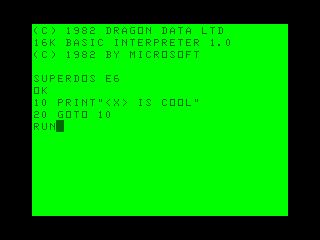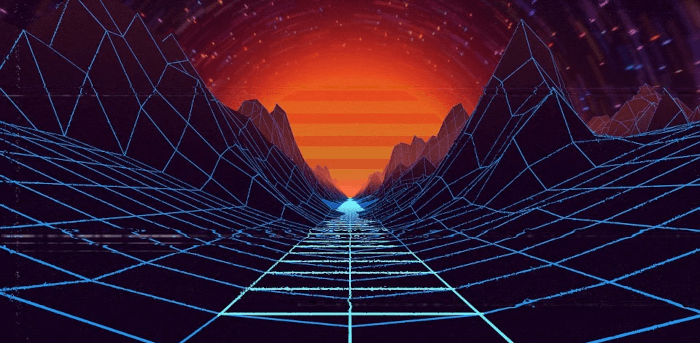XRoar is an emulator for the Dragon 32, Dragon 64, and Tandy CoCo computers all originally released in the early ’80s.
The emulator runs under Unix-like OSes (using SDL for video and OSS for audio) and the GP32 handheld gaming device.
The Dragon was an 8-bit personal computer based upon the Motorola MC6809E microprocessor.
Features include:
- Emulates Dragon 32, Dragon 64, Tano Dragon, Tandy CoCo 1/2.
- Emulates DragonDOS, Delta and RSDOS disk systems.
- Raw and translated keyboard modes.
- Reads and writes virtual cassettes (“.cas” files).
- Reads audio files as cassette input.
- Reads and writes DMK format virtual floppy diskettes.
- Reads (and supports in-memory writing of) JVC and VDK format virtual floppy diskettes.
- Custom snapshot format.
- Cross-platform support – runs under Linux, Unix, Mac OS X and Windows.
Website: www.6809.org.uk/xroar
Support: Manual
Developer: Ciaran Anscomb
License: GNU General Public License v2.0

XRoar is written in C. Learn C with our recommended free books and free tutorials.
Return to Home Computer Emulators | Return to Quirky Home Computer Emulators
| Popular series | |
|---|---|
| The largest compilation of the best free and open source software in the universe. Each article is supplied with a legendary ratings chart helping you to make informed decisions. | |
| Hundreds of in-depth reviews offering our unbiased and expert opinion on software. We offer helpful and impartial information. | |
| The Big List of Active Linux Distros is a large compilation of actively developed Linux distributions. | |
| Replace proprietary software with open source alternatives: Google, Microsoft, Apple, Adobe, IBM, Autodesk, Oracle, Atlassian, Corel, Cisco, Intuit, SAS, Progress, Salesforce, and Citrix | |
| Awesome Free Linux Games Tools showcases a series of tools that making gaming on Linux a more pleasurable experience. This is a new series. | |
| Machine Learning explores practical applications of machine learning and deep learning from a Linux perspective. We've written reviews of more than 40 self-hosted apps. All are free and open source. | |
| New to Linux? Read our Linux for Starters series. We start right at the basics and teach you everything you need to know to get started with Linux. | |
| Alternatives to popular CLI tools showcases essential tools that are modern replacements for core Linux utilities. | |
| Essential Linux system tools focuses on small, indispensable utilities, useful for system administrators as well as regular users. | |
| Linux utilities to maximise your productivity. Small, indispensable tools, useful for anyone running a Linux machine. | |
| Surveys popular streaming services from a Linux perspective: Amazon Music Unlimited, Myuzi, Spotify, Deezer, Tidal. | |
| Saving Money with Linux looks at how you can reduce your energy bills running Linux. | |
| Home computers became commonplace in the 1980s. Emulate home computers including the Commodore 64, Amiga, Atari ST, ZX81, Amstrad CPC, and ZX Spectrum. | |
| Now and Then examines how promising open source software fared over the years. It can be a bumpy ride. | |
| Linux at Home looks at a range of home activities where Linux can play its part, making the most of our time at home, keeping active and engaged. | |
| Linux Candy reveals the lighter side of Linux. Have some fun and escape from the daily drudgery. | |
| Getting Started with Docker helps you master Docker, a set of platform as a service products that delivers software in packages called containers. | |
| Best Free Android Apps. We showcase free Android apps that are definitely worth downloading. There's a strict eligibility criteria for inclusion in this series. | |
| These best free books accelerate your learning of every programming language. Learn a new language today! | |
| These free tutorials offer the perfect tonic to our free programming books series. | |
| Linux Around The World showcases usergroups that are relevant to Linux enthusiasts. Great ways to meet up with fellow enthusiasts. | |
| Stars and Stripes is an occasional series looking at the impact of Linux in the USA. | |
